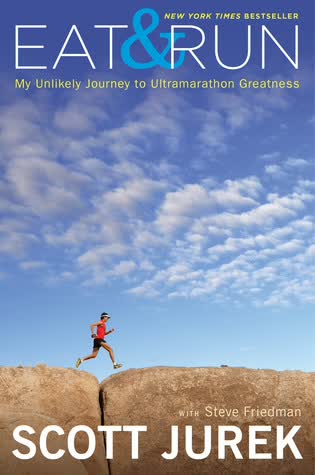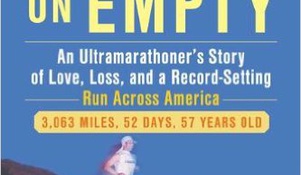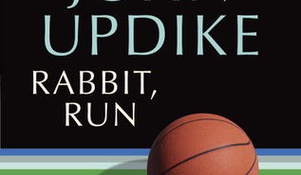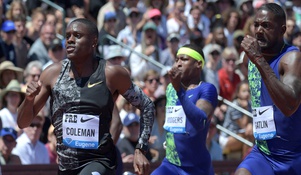Book review: Eat and Run, by Scott Jurek

At its core, Eat and Run by Scott Jurek (2012) is a chronicle of Jurek's preparations for and competition in numerous ultramarathon races mostly in the U.S. and Europe. If someone were to divide the content of the book into a pie chart, they would find that the narrative is split more-or-less evenly between three themes: Jurek's experience growing up and struggle with his family, recaps of races, and Jurek's spiritual journey. In the end, none of these is presented in a way that is compelling to the reader, largely because Jurek's prose is bland and his storylines suffer from fragmentation. The narrative never builds towards a climax, and it ends abruptly leaving no lasting effect.
On some level, it's unfair to fault Jurek for how the book ends. Frustration gnaws at him as he desperately seeks an all-encompassing mystical insight into life. Many of us have been there, disillusioned with the world, trying to penetrate through all the layers civilization has piled on to conceal our primal natures from us. But the message Jurek ultimately settles on is so cliche, it comes across as a cop out, as a last-resort measure just to conclude the book and deliver a finished product to the publisher.
Jurek wonders why his life has unraveled the way it has -- his personal connections disintegrate, he never channels his success as an ultra runner to building a meaningful career for himself. But is it really any surprise? Those of us who run regularly know how time-consuming a passion running is. Even a dedicated 5Ker has to train at least three or four times a week. A 5K workout might last 45 minutes, but factor in everything around it and it can easily take up three hours of a person's day. Now, substitute 100 miles into the equation, multiple times a year, and it becomes clear how Jurek's passion could not only profoundly disrupt his life but veritably become it to the exclusion and atrophy of everything else.
I've had occasion to attend several backgammon championships in Europe and the U.S. in recent years. One thing professional backgammon players have in common with competitive ultra runners is that they keep appearing at events where they play against the same individuals like a rotating salad buffet. The only people in the world some of them can truly relate to and interact with socially are other backgammoners, because they have no life outside of that one activity, to which they devote hours and hours studying and training. When Jurek's wife remarks that she has resolved to leave him because he isn't funny, one can't help sympathizing with her situation.
At first blush, Eat and Run bears a lot of resemblance to Charlie Engle's Running Man -- stories of young men who endured hardship in their formative years and prevailed against the odds. But where Jurek dwells on all the facets of his life that elevated him to greatness, Engle is exceedingly self-critical and it's through his self-criticism that the reader grows to admire him. Engle's personality is rich and his story broad in scope, whereas Jurek's personality is monochromatic and his story repetitive.
There is a paradox that emerges from Jurek's status as an ultra legend and his incessant quest for a spiritual breakthrough, and it is this: the man lived as close to nature as one can in the modern world, running along trails, up and down mountains, through rivers, for hours at a time, oftentimes alone; yet he never consummated his soul's oneness with nature. Nature became a means rather than an end, a platform upon which to build a legacy rather than a shrine unto itself. Jurek's failure to recognize this is what torments him as the book draws to a close.
The book gets 3 stars. Even that is a stretch, considering it is partly also a useless cookbook; but he is Scott Jurek, after all, and distance runners can still learn from his achievements. In one word, though: forgettable.




